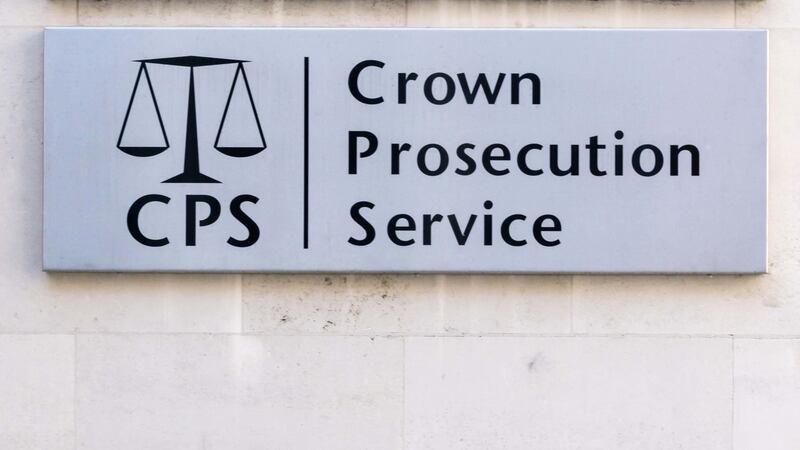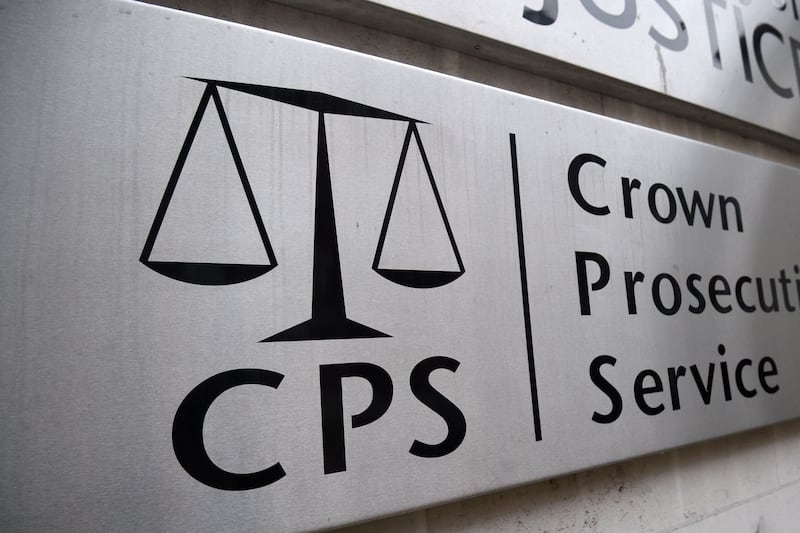The Crown Prosecution Service has been told to “get a grip” by a watchdog after crime victims who made complaints received responses containing basic errors.
Around half of the written responses to complaints scrutinised by the HM Crown Prosecution Service Inspectorate (HMCPSI) were found to be “inadequate”.
The blunders ranged from getting the names of complainants wrong to simple spelling and grammatical mistakes. There were also delays in responding to complaints.
In one instance, the CPS failed to tell a domestic abuse victim when their attacker had been released from custody.
Another victim was offered compensation in response to her complaint when she just wanted an explanation about how her case had been handled.
The watchdog set a deadline for standards to improve by December next year as it warned that sending letters containing errors could lead to an “erosion in confidence” in the criminal justice system.
HMCPSI chief inspector Andrew Cayley told the PA news agency: “There is a significant proportion of letters that contain mistakes and I think that sends the wrong message to the public.
“If, for example, somebody’s name is spelt wrongly that shows unfortunately a lack of attention.
“It’s a part of the CPS’s work that, for me, is disappointing and they need to get a grip of it now.
“It’s one of the only lines of communication members of the public have with the CPS and if the CPS get that wrong, that affects confidence in the criminal justice system. That’s how important this is.”
Inspectors examined a sample of 351 letters sent by the CPS throughout 2022, with 232 (66%) being sent to victims of crime. Other complainants included 27 witnesses (8%) and 66 defendants (19%).
In 49% of the letters, the CPS “failed to inform the complainant about delays or did not clearly confirm whether the complaint had been resolved”, the watchdog said.
Highlighting a string of examples, Mr Cayley said one victim of domestic abuse was not informed her attacker had been released from custody.
“So she had absolutely no idea that this individual is back in circulation, which I thought was very poor, to be frank, when the very person that has been causing you all this trauma is suddenly released back into society and the CPS hasn’t even bothered to tell you,” he said.
Mr Cayley said he was “shocked” by obvious spelling mistakes in the “central part” of a letter to the mother of a young victim who had been threatened and intimidated by a defendant. The word “intimidated” had been misspelt as “intimated”, while “apologise” was written as “apoligise”.
He said the “unfortunate” errors demonstrated a “lack of care” and attention to detail, adding: “It probably takes about a couple of minutes to spellcheck a document.”
He called on the CPS to make better use of software designed to “eliminate” a lot of the problems.
According to the watchdog, a domestic abuse victim whose case had failed just “wanted an explanation of what had happened”, but was instead offered money. When she refused the initial £200 payment, she was then offered £400 even though it was “clear… the complainant wanted justice, not money”.
Mr Cayley said: “Nobody involved in this had actually read her complaint properly to understand what she really wanted.
“Now, there are instances when the CPS compensate people financially where it’s appropriate. Clearly, in that case, what was appropriate was an adequate explanation and that wasn’t given, so that was wrong.”
Praising some improvements since similar concerns were raised five years ago, Mr Cayley said a “very large proportion” of the responses contained “sufficient levels of empathy”, with the “person writing the letter putting themselves in the shoes of the victim”.
This was a “huge improvement since 2018”, he said, adding that a “reasonable and realistic solution” was reached in the “vast majority of cases”.
Keen not to overstate the problems, Mr Cayley said there were other pressing issues the CPS needed to tackle.
“How the police and CPS work together, in my view, is the most fundamental issue in criminal justice around the CPS and the police at the moment, and I’m working very hard to try and resolve that.
“If we can fix that, if we can make that relationship a lot better, many, many things within criminal justice will improve.”
London’s victims’ commissioner Claire Waxman said: “Communicating with victims in a timely, clear and trauma-informed way is crucial for their ability to cope and recover.
“Complaints going unacknowledged and letters sent late with basic spelling and grammar mistakes are simply not acceptable. The quality of some of these letters reflect poorly on the CPS, at a time when I know they are working hard to enhance their service to victims; but they must focus on getting these basics right if they hope to improve the experience for victims.”
A CPS spokeswoman said: “We are committed to maintaining the highest standards for victims and improving our feedback and complaints procedure is a vital part of that.
“We are pleased there have been significant improvements since our last inspection in 2018, with empathy, timeliness and our acknowledgement of mistakes all highlighted as strengths.
“We recognise that there is more that can be done, and we will continue to drive forward improvements so that we can provide the best possible service for victims.”








